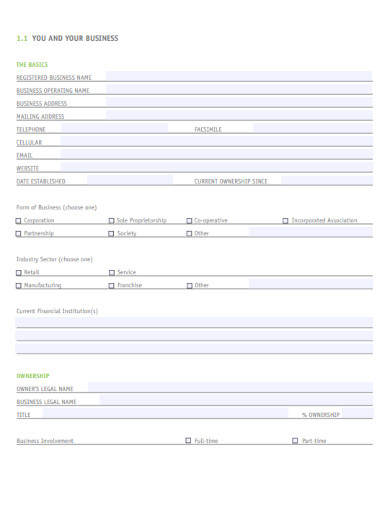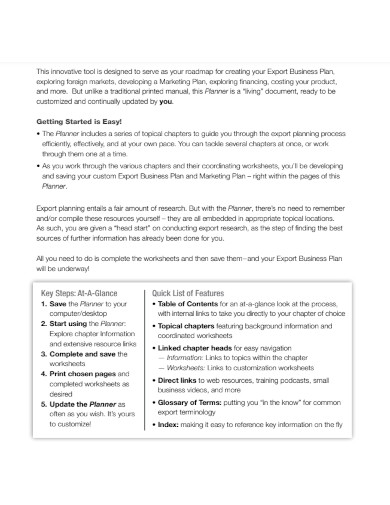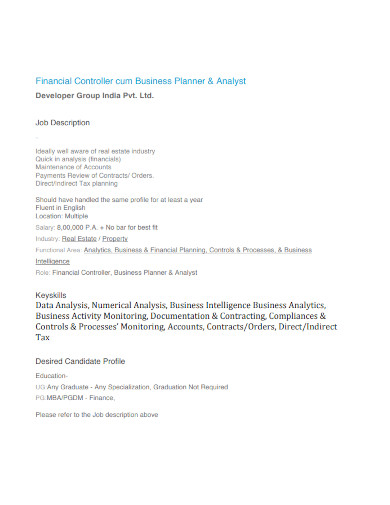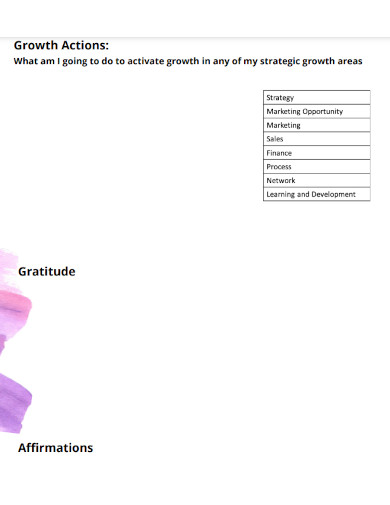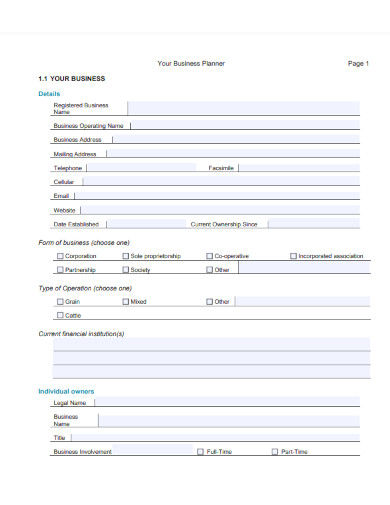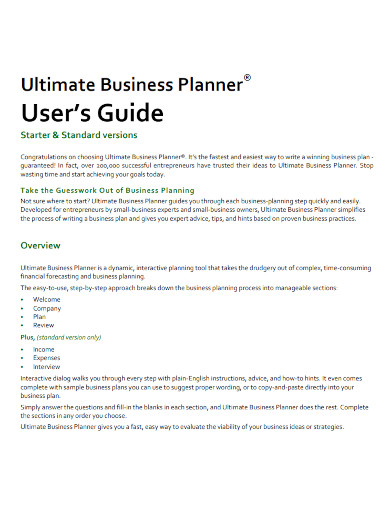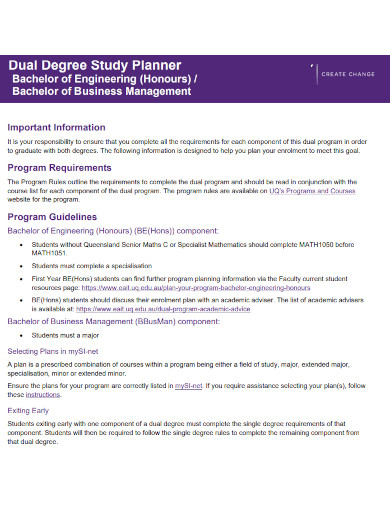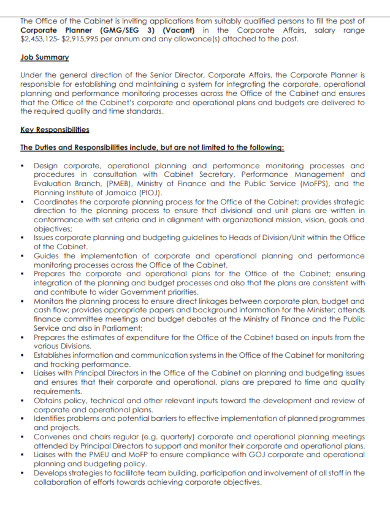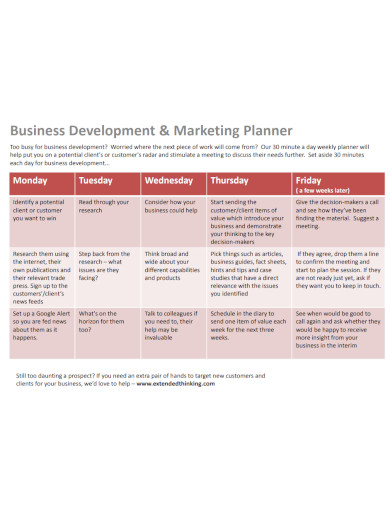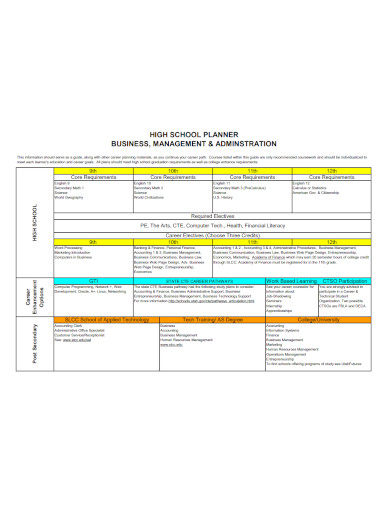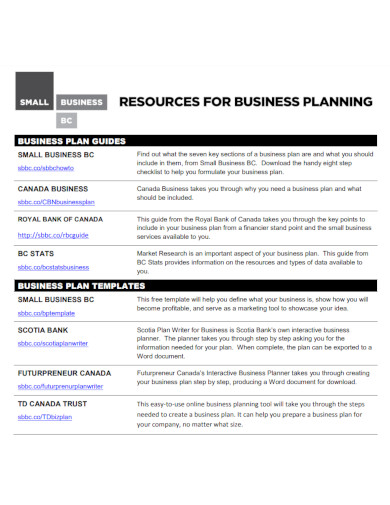If you are drafting a business planner to obtain a bank loan, venture capital investment, or angel investments, expand your company business, or even sell your business, our template will assist you in accomplishing your objectives. You will be able to get started immediately with this tested and proven template, which will help you save valuable time and simplify the business planning process. You can view the template outline further down on this page or use the form on this page to download the template as a Word document.
10+ Business Planner Samples in PDF
1. Recruitment for the post of Business Planner
2. Business Planner Profile
3. Export Business Planner
3. Financial Controller Business Planner
4. Business Growth Planner
5. Agriculture Business Planner
6. Ultimate Business Planner User’s Guide
7. Dual Degree Study Business Planner
8. Corporate Business Planner
9. Business Development & Marketing Planner
10. High School Business Planner
11. Resources for Business Planning
What Is a Business Planner?
A business planner provides a crystal-clear definition of a company’s professional goals and outlines how those objectives will be attained. It acts as a strategy roadmap and assists you in effectively reaching the destination of your journey. Small business planner serve the same purpose as their larger counterparts. They outline the key achievements that must be accomplished to develop a prosperous small business. They are also vital for determining the challenges ahead and developing strategies to overcome them. The financial action, marketing workflow, operations agreement, and sales all play a role in helping you achieve your objectives, and so do the other parts of a business plan.
How To Make a Business Planner?
The nature of the company and the extent of the market that the document will be centered on both significantly determine the length of a business planner. Nevertheless, it is common for all the material to be contained in fifteen to twenty pages. Even though no two business plans are the same as one another, the vast majority follow practically all of the same guidelines. These components will be broken down and elaborated upon in the following sections.
Step 1- Executive Summary
An introductory paragraph should be included at the beginning of your document. This paragraph should provide an overview of the company and all aspects related to its mission-vision values, company leadership, employees, operations, and the general location of where the business will be established. This part of the document is also known as the executive summary, and all that should be discussed in it is the nature of the business and the values it upholds.
Step 2- Products and Services
After that, the paper needs to present the items and services the company provides or may provide in the future. Included in this are the prices, the longevity of the product, the duration of the services, the advantages to the consumer, and additional elements such as the manufacturing and production processes, as well as patents and proprietary technology.
Step 3- Marketing Strategy
After conducting an in-depth analysis of the market, the next step is to choose the approaches you will use to bring in new customers and maintain their interest in your offerings. Describe how your organization intends to achieve this goal by identifying a distinct distribution channel, which should include marketing and advertising initiatives, as well as the means that will be used to spread these campaigns.
Step 4- Financial Planning
The components of the business plan that deal with the company’s finances and budget should be the last ones to be completed. Investors will be more likely to put their money into a company with a detailed and well-organized financial strategy, particularly those investors looking for a company that would provide a satisfactory return on their money. Statements of financial position, balance sheets, and any other records that pertain to your finances should be compiled.
Who exactly requires a business plan?
When asking for a loan is only one of many situations in which having a business plan can be useful. The vast majority requires it of banks, and even those that do not require it, typically expect it.
What are the four kinds of business plans?
Business plans can be divided roughly into 4 distinct types; Very short plans Presentation plans Working plans What-if plans
How do I write a business plan for the first time?
You can write an executive summary, describe your company, state your business goals, etc.
Putting together a business strategy on paper helps you see more plainly what steps need to be taken to realize your objectives. You can use the completed business plan as a tool to help keep these objectives front and center in your thoughts. It is a useful tool to refer back to, which will assist you in maintaining your concentration and staying on course.
Related Posts
Weekly Schedule Samples & Templates
Contractual Agreement Samples & Templates
FREE 9+ Amazing Sample Church Bulletin Templates in PSD | PDF
Sample Business Card Templates
Sample Cashier Job Descriptions
Questionnaire Samples
FREE 10+ Sample HR Resource Templates in PDF
FREE 10+ HR Consulting Business Plan Samples in MS Word | Google Docs | Pages | PDF
FREE 49+ Sample Job Descriptions in PDF | MS Word
FREE 16+ Nonprofit Budget Samples in PDF | MS Word | Excel | Google Docs | Google Sheets | Numbers | Pages
FREE 13+ Academic Calendar Templates in Google Docs | MS Word | Pages | PDF
FREE 10+ How to Create an Executive Summary Samples in Google Docs | MS Word | Pages | PDF
FREE 23+ Sample Event Calendar Templates in PDF | MS Word | Google Docs | Apple Pages
Company Profile Samples
FREE 10+ Leadership Report Samples [ Development, Training, Camp ]


